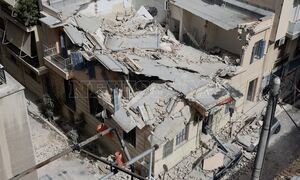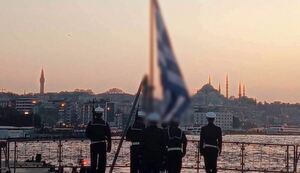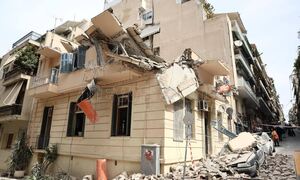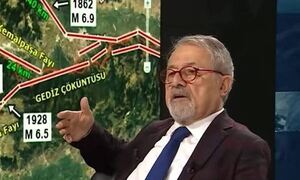K. Karamanlis: "Greece will be under surveillance for many years!"
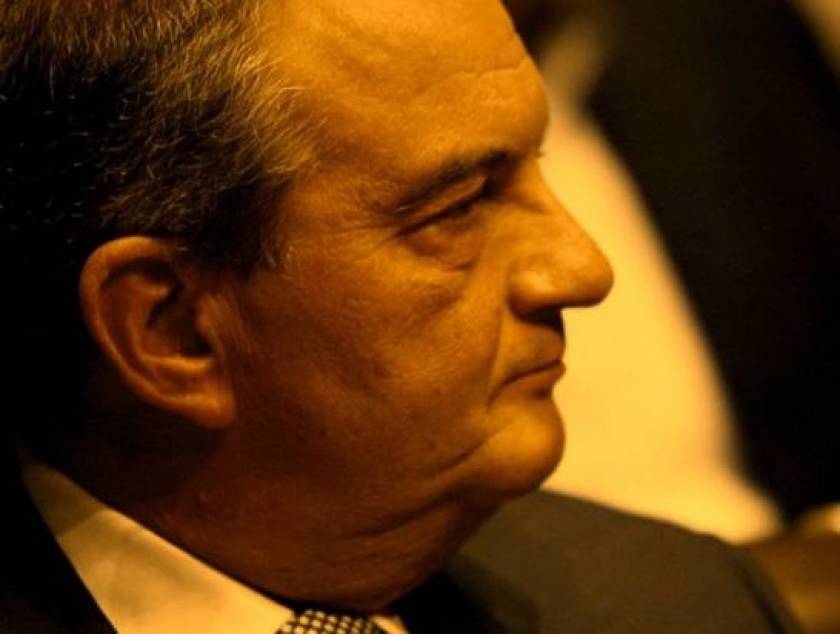
What says the former prime minister for the developments in the political scene • He is afraid of a crisis in national issues ... • "ND is not withstanding rates 15%!" • "There is lack of culture of dialogue in the country" ... • "Tsipras has matured, but what about the others around him?"
Lately many speak on behalf of Karamanlis and others with incredible ease - which borders on naivety - are trying to interpret his intentions; especially those who expect a move by former Prime Minister ... or even a nod.
He prefers to keep a low profile, but he sends his messages. His institutional role is delicate and does not allow divisive interventions.
Newsbomb is able to know how o former Prime Minister, Kostas Karamanlis, anything but shares the euphoria trying to build the government on the exit from the memoranda and the end of the surveillance of our country.
What does Kostas Karamanlis say to his close associates for what is happening in the political scene?
According to exclusive information of Newsbomb.gr, of discussions which had recently with friends, colleagues, and dozens of MPs and members of ND, (who visit him in his Office in Panaghi Kyriakou street), K. Karamanlis expresses the pessimistic assessment that "Greece is so tied in the commitments of the memoranda that will be under surveillance for decades, perhaps for some three decades!"
Indeed hastens to add that this will happen independently of the kind of government of our country, since it is very difficult for Greece not to honor its obligations...
Therefore he foresees that Greece will live very difficult years.
He also does not a exclude, as stated by his interlocutors, even a crisis in national issues, since he believes that in such critical times nothing can be excluded, according to his experience. This is why the former Prime Minister proposes:
- First, opening channels of communication between the political forces, something he considers necessary, while he denounce the fact that something like that does not exist at this time in our country.
- Second, strengthening the powers of the President of the Republic. He believes that the next constitutional review should include a more regulatory role of the President, who now is simply decorative, since the goverment is fully prime minister-oriented. This omnipotence of the respective Prime contributes to breaking down the necessary bridges that should exist between the political forces in the country...
Not interested...
However, K. Karamanlis, when asked if he would be interested to be President of the Republic with enhanced powers of the President, continues to deny that saying "I'm not interested."
However in this issue, explains his attitude of the general political climate in Greece and especially the complete lack of culture of dialogue, which destroys the bridges between political forces, even "in a sinking country" as points out. Therefore the dialogue is a condition of survival ... In fact emphasizes that "is it possible almost two and a half years after the elections, the prime minister and the leader of the main opposition not to have met?"
ND cannot withstand 15%!
In regard to intra party developments, K. Karamanlis reiterates emphatically, in every direction, that he is not interested.
He recalls something that he underlined in Ant. Samaras, when he delivered him the leadership after his victory in the intra-party showdown in 2009:
- "Me, Anthony, I am not going to become an honorary president of the party ...", meaning that he would not bring the slightest problem with interventions in party matters.
Besides, he adds, he served for many years as a leader of the party and as a prime minister for five and a half years, so there is no reason for a comeback? However, despite his categorical stance, he expresses great concern about the future of ND, which looks gloomy.
He states that "ND cannot withstand a rate around 15%", meaning that ND cannot withstand a collapse like that of PASOK in 2012, which continues. And if it fall in such rates or worse -even smaller, will occur rampant developments in the wider array of the party.
In each case, however, he is opposed to invitations without substantial political content.
For example, is firmly opposed to any invitation to G. Karatzaferis ...
Difficult to find 180...
K. Karamanlis is concerned about the outcome of the next elections, which believes that will occur soon, since he believes that it is very difficult to find the 180 votes necessary for the election of the new President.
He believes that Ant. Samaras would be better to lead developments in early elections by the end of November, since as time rolls, things will be more difficult for the government because of the great financial crisis.
In fact, he underlines that his concern is that for the first time there is a direct drain of votes from the ND to SYRIZA, maybe of 10%, and perhaps above!
For all these reasons, he considers that it is likely ND and PASOK to undergo a major electoral defeat and this to bring political twists, such as those in 2012.
As regards PASOK, he believes that Venizelos will not be endangered of such a political dispute within his party, which may reach the limits of subversion until the elections. But after the elections, he thinks that everything is open...
Tsipras has matured, but...
About SYRIZA and Al. Tsipras, K. Karamanlis considers that Tsipras has matured, but it is doubtful, whether the same happens with most members of the party of opposition. Also, he doubts whether it has established a leadership team ready to assume governmental responsibilities.
"Tsipras seems to have matured, but what about the others?", asks rather rhetorically.
He also expresses doubt whether SYRIZA is ready to take the government of the country or is still characterized by "ignorance of risk", as he stated characteristically.
Finally, K. Karamanlis, when hears the classic question of whether and when is going to speak, he replies that he does not intend to intervene, but adds:
- “Unless if someday I will speak as an institutional...”
